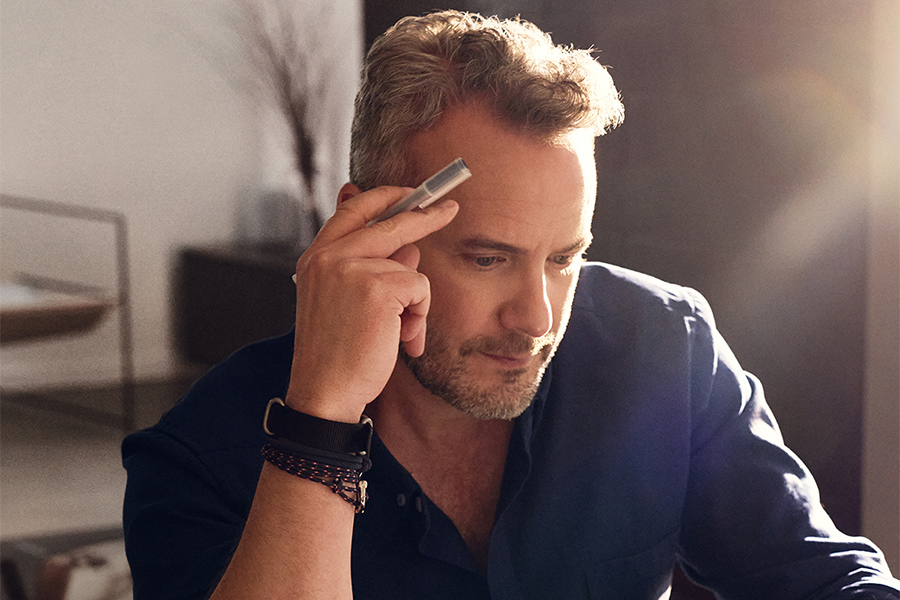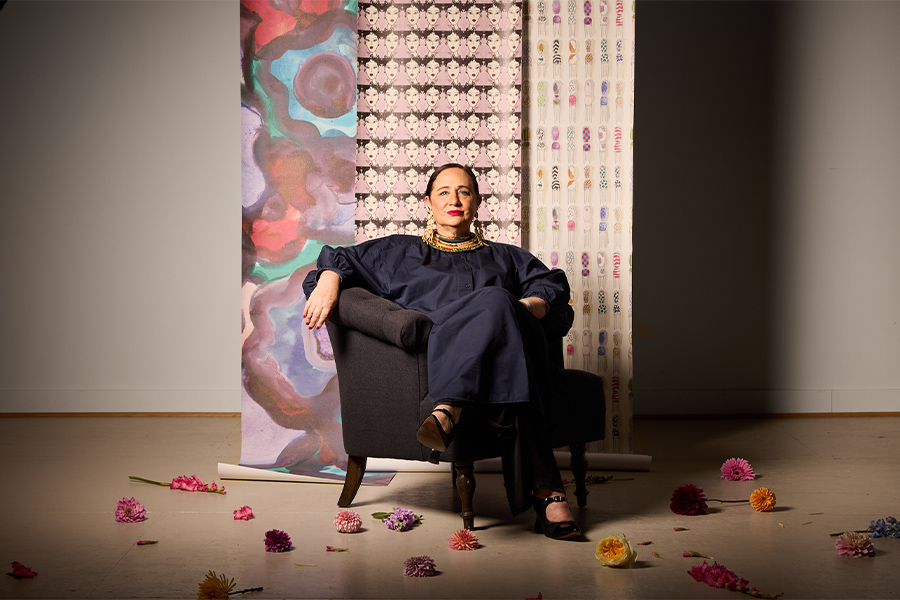Growing up just above the beach on St. John in the U.S. Virgin Islands, BOA found herself infatuated with the clean lines of the Caribbean horizon. Simple as they were, she would paint them over and over again. The island itself is a nature conservatory dedicated to national park land, which too fed her artistic sensibility. “I grew up with this awareness of having a space that’s reserved for honoring nature and living in harmony with it instead of constantly developing it,” she says.
Though she studied graphic arts at the School of the Art Institute of Chicago, BOA’s career began as a fashion model before she sustained a back injury that left her out of work for a year. She got a job in furniture retail, eventually working her way up to a buying position at a San Francisco showroom. When her bosses wanted to redo the space, BOA pitched a few ideas that they loved, including a few custom casegoods. When customers started to take notice, it encouraged her to set off on her own.

A custom bar cabinet by OI Studio constructed of formaldehyde-free MDF
Now based in New Orleans, she launched OI Studio in 2001, imbuing her furniture and accessories lines with a Japanese- and Italian-inspired aesthetic. However, trips to Bali and Brazil in 2003, where she saw the damaging effects of deforestation firsthand, reshaped her ethos to focus on eco-friendly design, choosing to use non-toxic materials (think wood, metal, and water-based lacquers) from the U.S., down to the packaging for shipping her wares. Manufacturers initially pushed back, but “I had to do something,” she says. “It’s rewarding to see where [the industry] is now from when I started.”
Last year, as a member of the Black Artists + Designers Guild (BADG), BOA helped design the virtual Obsidian House in Oakland, California, conceiving a mezzanine terrace powered by the sun. She is currently working on Drop, her first collection in 12 years, which features seating, tables, a daybed, and a double mirror. Because of the economic effects of the pandemic, she’s building the pieces as commissions come in. “This industry is difficult if you don’t have money, and many of us people of color don’t have access to funding,” BOA says. “There needs to be more equity and visibility. You need to have all the voices at the table.”
This article originally appeared in HD’s April 2021 issue.
More from HD:
The 36 Most Anticipated Hotel Openings of 2021
Black Artists + Designers Guild Founder Malene Barnett Shares Her Passion
6 Rising Product Designers With a Personal Touch


